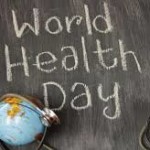
In pursuit of a healthy diet as you very well know, there are all kinds of ‘diets’ in the bid to lose weight – the good, bad, unbelievable, hazardous, hilarious, just name it. They all have claims and try to rub it in your face, compelling you to join the band wagon of ‘dieters’…good gracious!
Thankfully, we can view diet from another point of view – diet can be healthy, in fact it is meant to be. The ideal diet contains primarily foods that supply adequate nutrients – carbohydrates, protein, fat, mineral, vitamin and water without an excess of fat (unhealthy), sugar, sodium and alcohol.
The ABCs of healthy eating
Adequacy/Awareness – characterizes a diet that provides all of the essential nutrients and energy (calories) in amounts sufficient to maintain. Excess or too little can lead to toxicity or deficiency of such nutrient. Be aware of what you are eating and its nutritional value. What amounts of calories, fat and carbohydrates are in the foods you eat? Read labels and become food-conscious to make healthy eating decisions.
Balance – a feature of a diet that provides a number of types of foods in harmony with one another, such that foods rich in one nutrient do not crowd out the diet foods that are rich in another nutrient. Balance your daily food selection to include whole-grain products, fruit, vegetables, dairy products and foods high in protein. You need more than 40 different nutrients for good health, and no single food supplies them all.
Calorie Control – control of consumption to supply the amount of energy you need to maintain a healthy weight – not more, not less. Control portion size and intake of foods high in fat, salt or sugar.
Moderation – Eat food in moderation and choose other foods to provide the balance and variety that are vital to good health.
Variety – variety improves nutrition adequacy, as foods within a specific group may contain different amounts of nutrients. A diet that lacks variety is missing out on many nutrients necessary for optimal health.
A balanced diet is composed of approximately 45-65% of carbohydrate (with no more than 10% of this amount form added sugar or caloric sweeteners), 20-35% from fat (derived mostly from oils that are monounsaturated and polyunsaturated, rather than solid fat) and lastly 10-35% from protein.
Eating is one of life’s great pleasures. You can enjoy all foods as part of a healthy diet as long as you don’t overdo it on solid fats (especially saturated fat and trans fat), refined carbs, added sugars, sodium and alcohol.
The key to disease prevention and optimal health is not in eating or avoiding certain food, but rather in creating a lifestyle that includes time for preparing nutritious meals and enjoying regular physical activity. Your nutrition health can be controlled and it deserves you conscientious attention. Make a commitment to remain nutrition wise, diet wise and health wise.
Be sound in Spirit, Mind & Body!
Contributed by Iwo Akinyoyenu, US Certified Wellness Consultant @erumucreations photo source: healthymax.com
